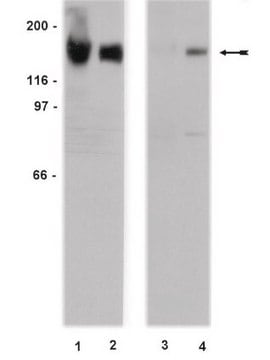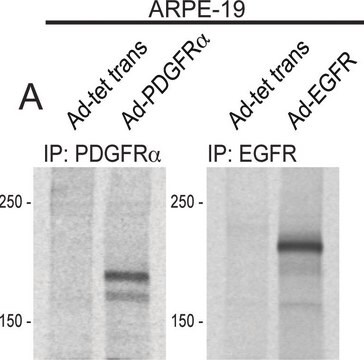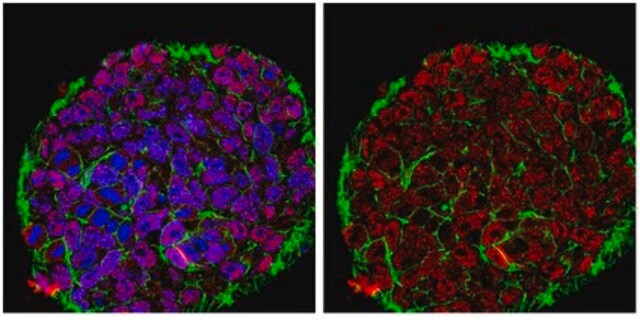07-820
Anti-phospho-EGFR (Tyr845) Antibody
Upstate®, from rabbit
Synonym(s):
Anti-ERBB, Anti-ERBB1, Anti-ERRP, Anti-HER1, Anti-NISBD2, Anti-PIG61, Anti-mENA
About This Item
Recommended Products
biological source
rabbit
Quality Level
antibody form
affinity purified immunoglobulin
antibody product type
primary antibodies
clone
polyclonal
purified by
affinity chromatography
species reactivity
human
manufacturer/tradename
Upstate®
technique(s)
immunocytochemistry: suitable
immunofluorescence: suitable
immunohistochemistry: suitable
western blot: suitable
NCBI accession no.
UniProt accession no.
shipped in
dry ice
target post-translational modification
phosphorylation (pTyr845)
Gene Information
human ... EGFR(1956)
Specificity
Immunogen
Application
Signaling
Growth Factors & Receptors
Quality
Target description
Physical form
Storage and Stability
Analysis Note
EGF stimulated A431 cells
Other Notes
Legal Information
Disclaimer
Not finding the right product?
Try our Product Selector Tool.
Storage Class Code
12 - Non Combustible Liquids
WGK
WGK 2
Flash Point(F)
Not applicable
Flash Point(C)
Not applicable
Certificates of Analysis (COA)
Search for Certificates of Analysis (COA) by entering the products Lot/Batch Number. Lot and Batch Numbers can be found on a product’s label following the words ‘Lot’ or ‘Batch’.
Already Own This Product?
Find documentation for the products that you have recently purchased in the Document Library.
Our team of scientists has experience in all areas of research including Life Science, Material Science, Chemical Synthesis, Chromatography, Analytical and many others.
Contact Technical Service








